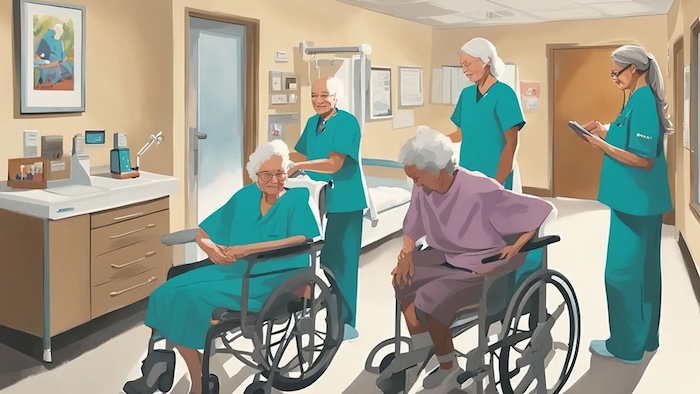— The Transition from Palliative Care to Hospice

By Mazhar Abbas
The transition from palliative care to hospice is a journey marked not just by the end of life, but by the culmination of a lifetime’s worth of relationships, memories, and the profound need for compassion. In the case of Elaine Arazawa, a 62-year-old woman diagnosed with pancreatic cancer that had metastasized to her liver, the value of community and personalized care in her final days comes into sharp focus. Diagnosed with a condition that led to over a dozen tumors, Elaine’s story underscores not only the medical but also the emotional dimensions of transitioning to hospice care.
Understanding the Transition: From Palliative Care to Hospice
The journey from receiving life-prolonging treatments to focusing solely on quality of life is a critical period for patients with terminal illnesses. This transition necessitates a holistic approach that encompasses open communication and thorough assessment of patient needs. Healthcare professionals play a pivotal role in guiding families through this change, ensuring that care is not only medically appropriate but also aligns with the patient’s and family’s emotional and psychological needs. The story of Elaine Arazawa illustrates the profound impact of a well-coordinated care plan, facilitated by a team of dedicated healthcare providers, death care workers, doulas, nurses, grief counselors, and social workers. Together, they create an environment where patients can find solace and families can navigate the complexities of grief and acceptance.
Key Indicators for Hospice Care
Recognizing the right time to transition to hospice care is crucial for ensuring that patients receive the most appropriate support as they approach the end of their lives. Key indicators include a significant decline in health despite receiving treatment, frequent hospitalizations, and a clear preference from the patient to focus on comfort rather than cure. For Elaine, the decision to enter hospice care came after a candid discussion with her healthcare team and family, highlighting the necessity of open dialogue in making informed choices about end-of-life care. This transition allowed her to spend her final days surrounded by love, reflecting on her life, and engaging in meaningful farewells, emphasizing the importance of timing and communication in hospice care decisions.
Building a Supportive Community
Elaine Arazawa’s experience brings to light the significance of community and emotional support in the hospice care process. Unlike many who faced the end of life alone during the pandemic, Elaine had the fortune of being surrounded by her family and a compassionate care team. This communal approach to end-of-life care not only provided Elaine with comfort and love but also offered her family the emotional support needed to cope with their loss. The involvement of death care workers, doulas, and grief counselors ensured that Elaine’s journey was not only about managing physical symptoms but also about caring for the emotional and spiritual well-being of both the patient and her family.
Complete Article ↪HERE↩!
